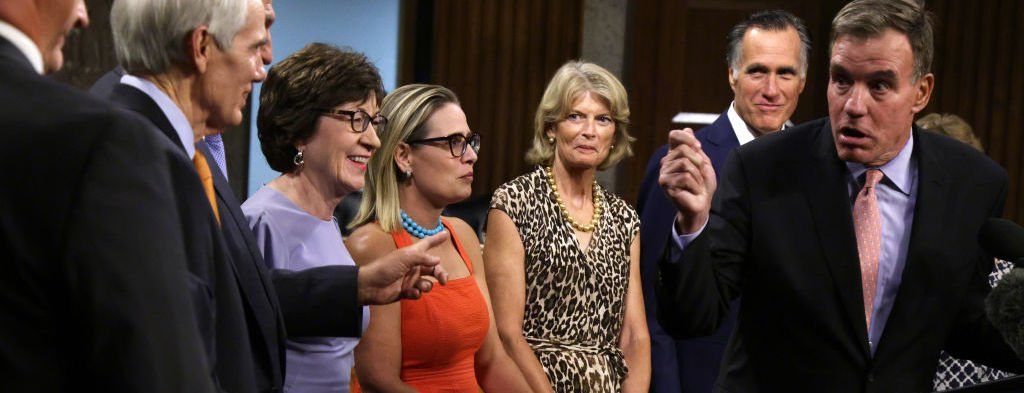Americans view compromise as a good thing in principle, though they sometimes punish those who try to find that compromise. This week’s Economist/YouGov poll suggests that remains true, even while Congress works to pass a revised bipartisan infrastructure bill. They did succeed in crafting a bill that gets the support of Republicans, Democrats and Independents alike.
Republican support, however, just below half – although they still tend to support the bill by almost 2:1. GOP opposition in part stems from the belief of more than a third of Republicans that they will be personally harmed by its passage. Nevertheless, four in ten in this group still support the bill. Democrats, meanwhile, are overwhelmingly positive, and a majority of Independents are also in favor.
Conservatives, especially those who describe themselves as very conservative, are less supportive of the infrastructure bill than liberals or moderates. Among Republicans, for example, only 39% of those who call themselves very conservative support the compromise bill, compared to 53% of other Republicans.
Across the ideological spectrum, Democrats are in favor. There is little indication in this poll that the most liberal of Democrats in the public reject the bill (as some Democratic representatives are threatening to). Six in ten Democrats who call themselves very liberal support the compromise bill (62%) and just 15% oppose it, not much different from overall Democratic opinion. The bill did, after all, begin as a Democratic president’s initiative.
This Economist/YouGov poll also asked Americans to rate five of the ten senators involved in the negotiations. Reaching their hands across the aisle may have helped these senators when it comes to how the other party views them, but it may also have hurt them with their own.
For the Republican senators, at least twice as many Republicans hold negative as positive views of each of them: Mitt Romney of Utah (63% vs 21%), Susan Collins of Maine (39% vs 20%), and Lisa Murkowski of Alaska (40% vs 15%).
The Democratic senators too prove unpopular with their own party’s voters: Joe Manchin of West Virginia is disliked by 44% and garners the approval of only 20%, while the less well-known Kirsten Sinema of Arizona draws unfavorable views from 35% and favorable ones from only 17%.
Even more striking, Democrats are more likely than Republicans to have very unfavorable views of the two Democratic senators, and Republicans are similarly more likely than Democrats to have very unfavorable opinions of Murkowski and Romney. Republicans who oppose the compromise infrastructure legislation are also particularly negative about the senators of their party who helped craft the bill.










